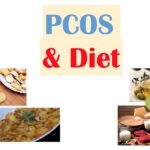Health & Wellness By Diet Therapy
Health & Wellness By Diet Therapy – Are you suffering from obesity and other health-related problems? And Looking for information about how to improve Health & Wellness By Diet Therapy? Then you come to the right place. Health is wealth. And there is no doubt about it. An individual can take care of her health & wellness by eating foods filled with nutrients and adequate vitamins. A diet plan that controls the consumption of certain meals or nutrients is known as a medicinal diet. Usually, it is prescribed by a medic to a person. It is modified by dietitians as per the body needs of an individual.

How Does Diet Therapy Work?
Diet Therapy is a simple diet suggested by dietitians to improve health. In this therapy, the dietitian makes a smart diet plan for the person. And, an individual has to follow this meal plan to the recommended period.
According to the definition, A well-balanced diet helps to maintain body weight as well as keeps illness away. Apart from this, the therapeutic meal plan is recommended for the prevention of certain diseases. Such as Cancer, Heart attacks, and liver, kidney, or lung problems.
Type Of Diets For Better Health & Wellness
There are various types of diets that help in maintaining body weight. As well as keep other harmful diseases away. However, there are two primary types of keeping your health in a good state. Additionally, to maintain your wellness.
Routine Or Regular Or prophylactic Diet – Well, in this diet all types of meals are included. As an epitome, fruits, veggies, meat and dairy products, low-carb diets, and so on. A regular diet is capable of maintaining the body and health in a good state. All individuals eat a similar diet to this.
Modified Or Therapeutic Diets – Modified diets are different from regular diets. As per the definition, it changes by altering the food consistency or by including or eliminating specific foods. For example, high-calorie, protein diets, low-calorie, low-protein diets, high-residue diets, and so on.
What Are The Main Objectives Of Diet Therapy?
- Diet Therapy helps to increase or decrease the anatomy weight.
- It also provides rest to different organs.
- Adapt and watch how your body processes miscellaneous edibles.
- Diet therapy is a triumphant objective as a cure. For example regulation of blood insulin in diabetes.
- Additionally, diet therapy helps to maintain the balance of nutritional gaps. And, by consuming feasts high in certain crucial components. Such as supplementing the food with iron. That is the perfect way of treating anemia.
- Last but not least, diet therapy aids in making the digestion process simpler and stronger. By banning undesirable components. Such as fibre, spices, or foods heavy in fat.
Tips For Health & Wellness By Diet Therapy
Must Try Liquid Diet
A liquid diet helps to maintain your hydration level. It is the edibles that are liquid at body temperature. This type of diet is suggested for the individual who is not able to chew or swallow the food. Additionally, a liquid diet can be taken to heal from a procedure. Soft drinks, Milk, and different juices made from veggies and fruits are examples of this type of diet.
Have High-Protein Diet
It is suggested by dieticians that nothing is better than a high-protein diet for burning calories. Apart from this protein is essential for the growth of the body. Thus, eat a diet that contains 0.6–0.75 grams of protein per pound of body weight.
Eggs, almonds, greek yogurt, cheese, and nuts are great sources of high protein that you can eat on a regular basis.
Include Soft Diet
A soft diet is easy to digest and low in fibre. Liquid food, cereals, white bread and meat, and chicken are part of a soft diet. It is recommended for patients that are suffering from a long illness. And, it is important that no spices are used to cook this spicy food.
Improve Health With High-Calorie Diet
As the name suggests, a high-calorie diet contains more calories that an individual needs on a regular day. In general, this type of diet is recommended for people who are suffering from being underweight, and malnourished. Moreover, it is suggested to be taken by individuals having few of these health conditions. Such as cancer, HIV, AIDS, wounds or pressure injuries, and burns.
Not Forget High Residue Diets
High-residue diets are planned for people who are having trouble with constipation, and diverticular disease during the non-acute phase. And, it helps to maintain the cholesterol level, sugar level, and other things in the body. Food items such as whole-wheat bread, whole-wheat pasta, barley, bran, brown rice, popcorn, oats, quinoa, bulgur, rye, millet, and buckwheat are enriched with a high residue diet.
Conclusion
Thus, eating junk food affects your health. And, I hope that you liked this blog and gained enough knowledge about Health & Wellness By Diet Therapy.




